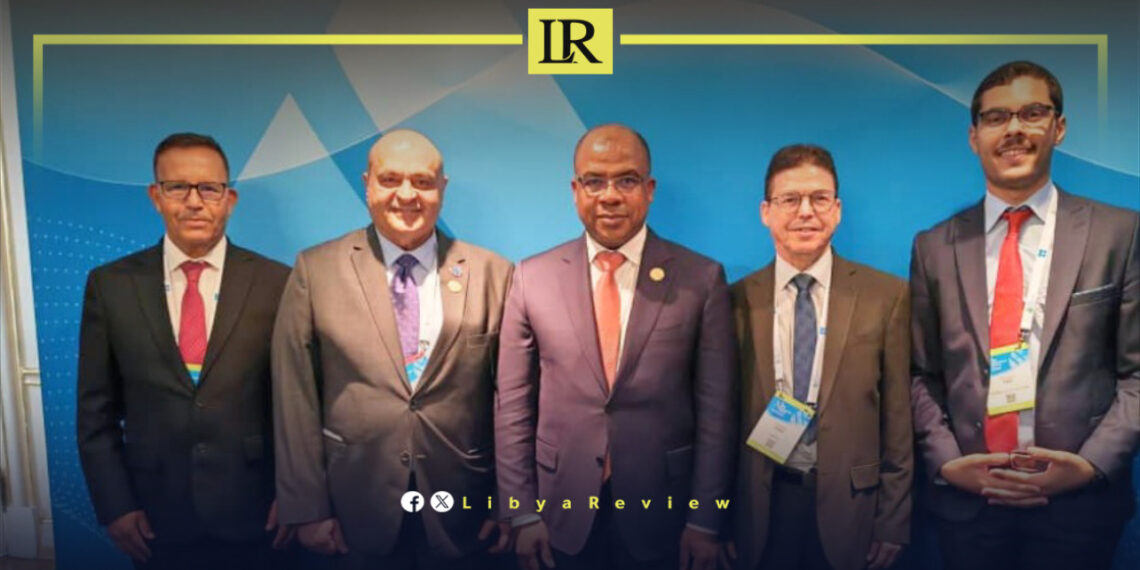Libya’s Minister of Oil and Gas, Khalifa Abdel-Sadiq, has explored ways to expand Libya’s benefit from its founding membership in the Organization of Arab Petroleum Exporting Countries (OAPEC), to further enhance the development of the oil and gas sector.
The discussions took place during a meeting with OAPEC Secretary-General Jamal Al-Loughani on the sidelines of the 9th International Gas Exporting Countries Forum, according to a statement from Libya’s Ministry of Oil and Gas.
During the meeting, the two sides reviewed the latest projects and initiatives launched by the organization, focusing on technical and economic programs that could support Libya’s energy sector amid global and regional shifts in the energy landscape.
Minister Abdel-Sadiq praised OAPEC’s significant progress in recent years and commended its efforts to strengthen Arab cooperation in the energy field.
The ministry emphasized that this meeting reflects Libya’s keenness to expand its cooperation with specialized regional organizations, in order to boost its presence and influence in the global energy market. It also aims to maximize the country’s use of available resources and opportunities to serve national interests.
Libya has been in chaos since a NATO-backed uprising toppled longtime leader Muammar Gaddafi in 2011. The county has for years been split between rival administrations.
Libya’s economy, heavily reliant on oil, has suffered due to the ongoing conflict. The instability has led to fluctuations in oil production and prices, impacting the global oil market and Libya’s economy.
The conflict has led to a significant humanitarian crisis in Libya, with thousands of people killed, and many more displaced. Migrants and refugees using Libya as a transit point to Europe have also faced dire conditions.
The planned elections for December 2021 were delayed due to disagreements over election laws and the eligibility of certain candidates. This delay has raised concerns about the feasibility of a peaceful political transition.
Despite the ceasefire, security remains a significant concern with sporadic fighting and the presence of mercenaries and foreign fighters. The unification of the military and the removal of foreign forces are crucial challenges.


